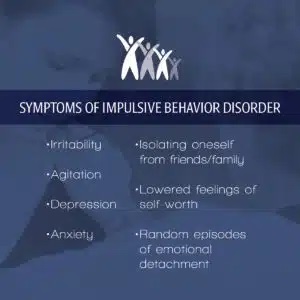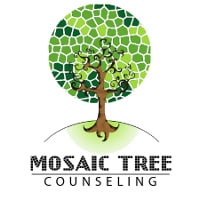Impulsive Behavior
Impulsive behaviors are behaviors that you engage in without really reflecting on the possible consequences of your actions or the potential to harm yourself or other people. Minor forms of this behavior are common even among generally functional adults. However, you can develop impulse control problems severe enough to qualify you for a mental health diagnosis (APA, 2018). Luckily, doctors can use a variety of methods to treat serious symptoms of poor impulse control.

Medication-based treatment, doctors can use a number of medications to help people with serious impulse-related conditions such as gambling disorder, hair-pulling disorder (trichotillomania), compulsive shopping disorder or skin-picking disorder (i.e., excoriation disorder). Examples of these medications include, antidepressants, mood stabilizers, and opioid antagonists. These treatment medications sometimes provide benefit by addressing symptoms of underlying, separate mental health conditions that can appear in people with impulse-related disorders. In addition, they may directly help control impulsive behaviors. We use Cognitive behavioral therapy (CBT) to as a form of psychotherapy that can help you understand the roots of your dysfunctional, impulsive thoughts and behaviors. It also can help you develop new, healthier ways of thinking and behaving. There are a number of different approaches to this therapy, and a trained practitioner can help you find one that suits your needs. The roots of serious impulsive behaviors may stem in part from problems in your family environment. In turn, poor impulse control almost certainly has a negative impact on your family dynamic. Family therapy may include parents, children, siblings or other relatives — can help you address both issues. Mutual self-help groups for people with impulse control problems function in essentially the same way as mutual self-help groups for people with substance problems. Under the guidance of a trained facilitator, these support groups can help you gain a better perspective on your situation and the steps you need to take to get better. A self-help group for impulsive behavior may or may not have a spiritual/religious orientation. It’s not uncommon for people diagnosed with impulse-related disorders to have problems with substance abuse. The same holds true for other forms of co-existing mental illness. By receiving treatment for these other issues, you may drastically increase your chances of successfully controlling your impulsive behavior.
American Psychiatric Association (APA). Diagnostic and Statistical Manual of Mental Disorders. 5th ed. Washington, DC: 2013. Psychiatric Times: Impulse Control Disorders – Clinical Characteristics and Pharmaceutical Management
American Psychiatric Association (APA). Diagnostic and Statistical Manual of Mental Disorders. 5th ed. Washington, DC: 2013. Psychiatric Times: Impulse Control Disorders – Clinical Characteristics and Pharmaceutical Management
Therapy Modalities
Abuse & Neglect
ADHD
Anxiety
Bipolar
Career Counseling
Communication Difficulties
Couples Therapy
Depression
Eating Disorders
Employee Assistance
Impulsive Behavior
Obsessive Compulsive Disorder (OCD)
Oppositional Defiant Disorder (ODD)
Play Therapy
Posttraumatic Stress Disorder (PTSD)
Self Esteem
Self Mutilation
Shop
Social Skills

